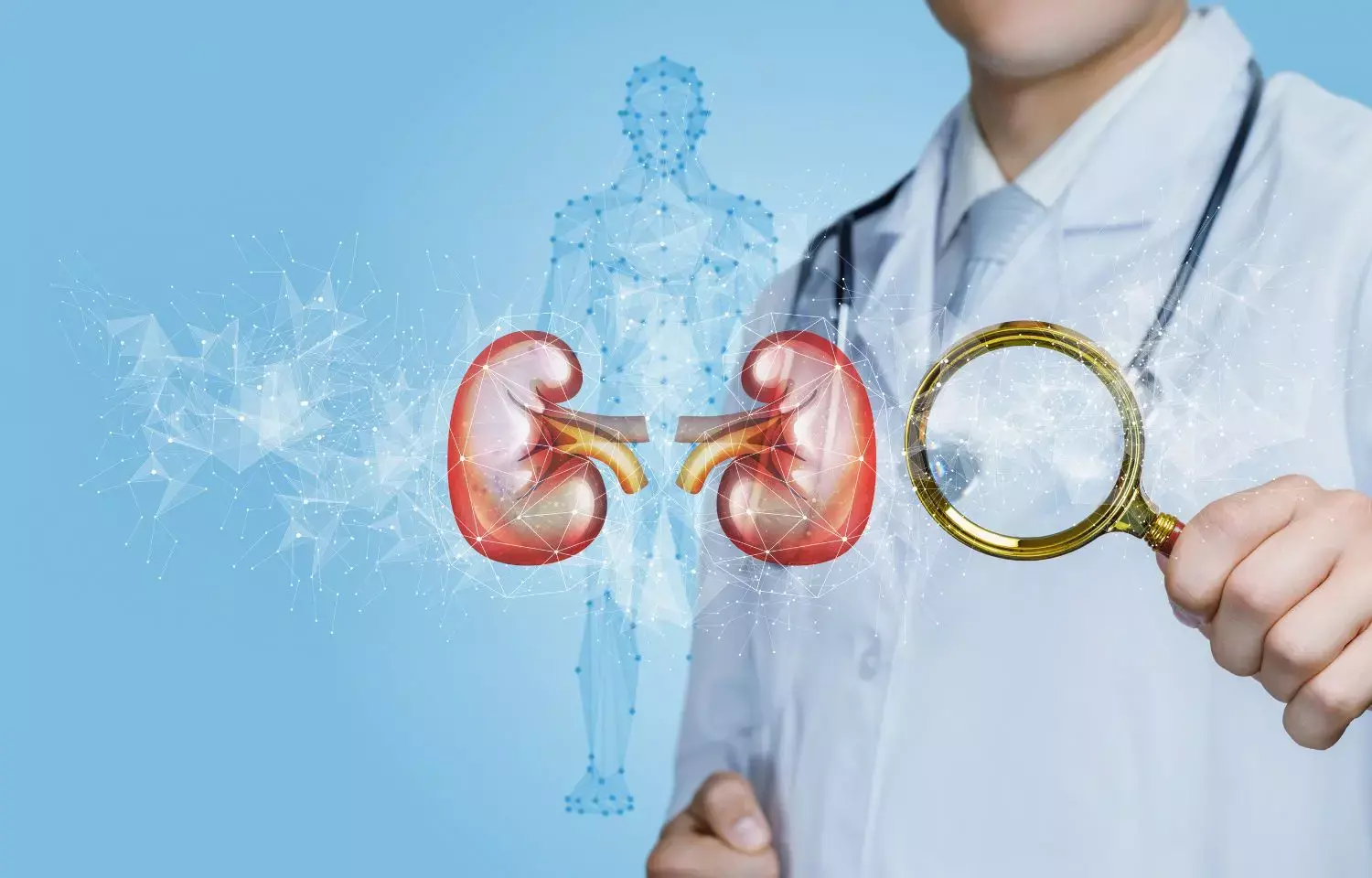- Home
- Medical news & Guidelines
- Anesthesiology
- Cardiology and CTVS
- Critical Care
- Dentistry
- Dermatology
- Diabetes and Endocrinology
- ENT
- Gastroenterology
- Medicine
- Nephrology
- Neurology
- Obstretics-Gynaecology
- Oncology
- Ophthalmology
- Orthopaedics
- Pediatrics-Neonatology
- Psychiatry
- Pulmonology
- Radiology
- Surgery
- Urology
- Laboratory Medicine
- Diet
- Nursing
- Paramedical
- Physiotherapy
- Health news
- Fact Check
- Bone Health Fact Check
- Brain Health Fact Check
- Cancer Related Fact Check
- Child Care Fact Check
- Dental and oral health fact check
- Diabetes and metabolic health fact check
- Diet and Nutrition Fact Check
- Eye and ENT Care Fact Check
- Fitness fact check
- Gut health fact check
- Heart health fact check
- Kidney health fact check
- Medical education fact check
- Men's health fact check
- Respiratory fact check
- Skin and hair care fact check
- Vaccine and Immunization fact check
- Women's health fact check
- AYUSH
- State News
- Andaman and Nicobar Islands
- Andhra Pradesh
- Arunachal Pradesh
- Assam
- Bihar
- Chandigarh
- Chattisgarh
- Dadra and Nagar Haveli
- Daman and Diu
- Delhi
- Goa
- Gujarat
- Haryana
- Himachal Pradesh
- Jammu & Kashmir
- Jharkhand
- Karnataka
- Kerala
- Ladakh
- Lakshadweep
- Madhya Pradesh
- Maharashtra
- Manipur
- Meghalaya
- Mizoram
- Nagaland
- Odisha
- Puducherry
- Punjab
- Rajasthan
- Sikkim
- Tamil Nadu
- Telangana
- Tripura
- Uttar Pradesh
- Uttrakhand
- West Bengal
- Medical Education
- Industry
Tirzepatide better than glargine for improving kidney outcomes in type 2 diabetes: SURPASS-4 trial

USA: Tirzepatide slows the estimated glomerular filtration rate (eGFR) decline and reduces the urine albumin-creatinine ratio (UACR) in type 2 diabetes patients with high cardiovascular (CV) risk compared with insulin glargine, researchers state in a recent study.
These are the findings from a posthoc analysis of the SURPASS-4 trial-an open-label, randomized, phase 3 trial mentioned in The Lancet Diabetes & Endocrinology.
Tirzepatide, the dual GIP and GLP-1 receptor agonist was shown to reduce HbA1c concentrations, blood pressure, and body weight more than titrated daily insulin glargine in the SURPASS-4 trial among patients with type 2 diabetes not controlled adequately on oral diabetes treatments and high CV risk. Prof Hiddo J L Heerspink and colleagues compared the effects of tirzepatide and insulin glargine on kidney parameters and outcomes in type 2 diabetes patients.
For this purpose, the researchers performed a post-hoc analysis of data from the SURPASS-4 trial at 187 sites in 14 countries. Adults aged ≥18 years with type 2 diabetes treated with any combination of metformin, an SGLT2 inhibitor, or sulfonylurea having a baseline BMI of 25 kg/m2 or greater, HbA1c of 7·5–10·5% (58–91 mmol/mol), and established cardiovascular disease or a high CV events risk were eligible to be included in the study. Randomization was done in the ratio of 1:1:1:3 to a once-weekly subcutaneous (SC) injection of tirzepatide in the dose of 5 mg, 10 mg, or 15 mg or a once-daily SC injection of titrated insulin glargine (100 U/mL).
The treatment was done up to 104 weeks, with a median treatment duration of 85 weeks. The researchers compared the rates of eGFR decline and the UACR between the combined tirzepatide groups and the insulin glargine group. The kidney composite outcome was time to the first occurrence of eGFR decline of at least 40% from baseline, death due to kidney failure, end-stage kidney disease, or new-onset microalbuminuria.
A total of 3045 people were screened between Nov 20, 2018, and Dec 30, 2019; 34% were ineligible, and 66% were randomly assigned to a study drug (997 to tirzepatide and 1005 to insulin glargine). 1995 of 2002 received at least one dose of tirzepatide (n=995) or insulin glargine (n=1000).
The study yielded the following findings:
· At baseline, mean eGFR was 81·3 mL/min per 1·73 m2 and a median UACR of 15·0 mg/g.
· In the combined tirzepatide groups, the mean rate of eGFR decline was –1·4 mL/min per 1·73 m2 per year and –3·6 mL/min per 1·73 m2 per year in the insulin group.
· The decrease in the annual rate of eGFR decline induced by tirzepatide was more pronounced in patients having eGFR less than 60 mL/min per 1·73 m2 than in those with eGFR 60 mL/min per 1·73 m2 or higher compared with insulin glargine.
· UACR improved from baseline to follow-up with insulin glargine (36·9%) but not with tirzepatide (–6·8%).
· Participants who received tirzepatide showed a significantly lower occurrence of the composite kidney endpoint than those who received insulin glargine (hazard ratio 0·58).
"The results indicate that in patients with type 2 diabetes and high CV risk, tirzepatide reduced UACR and slowed the rate of eGFR decline in clinically meaningful ways versus insulin glargine," the researchers conclude.
Reference:
The study, "Effects of tirzepatide versus insulin glargine on kidney outcomes in type 2 diabetes in the SURPASS-4 trial: post-hoc analysis of an open-label, randomised, phase 3 trial," was published in The Lancet Diabetes & Endocrinology. DOI: https://doi.org/10.1016/S2213-8587(22)00243-1
Dr Kamal Kant Kohli-MBBS, DTCD- a chest specialist with more than 30 years of practice and a flair for writing clinical articles, Dr Kamal Kant Kohli joined Medical Dialogues as a Chief Editor of Medical News. Besides writing articles, as an editor, he proofreads and verifies all the medical content published on Medical Dialogues including those coming from journals, studies,medical conferences,guidelines etc. Email: drkohli@medicaldialogues.in. Contact no. 011-43720751


